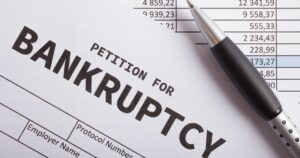What is a Bankruptcy discharge? At the end of your bankruptcy, you receive a discharge. This is a court order that is used for Chapter 7 and Chapter 13 bankruptcies, and it relieves you from debt obligations associated with the bankruptcy case.
To receive a discharge from the court, you must satisfy all requirements. Once your debts are discharged, the creditor cannot come after you for the balance due on that debt again. This includes sending letters, calling, or forwarding your information to a collection agency.
Once you receive a discharge notice, you will want to keep the document close and in a safe place. You may need to refer to it or show it as proof when having items corrected on your credit report or stopping collections on a debt included in the discharge order.
Which Debts Are Discharged in Bankruptcy?
The debts that are discharged depends on what type of bankruptcy you file. In a Chapter 7 bankruptcy, your trustee will divide all non-exempt assets among creditors; then, the remaining debts are discharged.
In Chapter 13 bankruptcy, the process is different. Here, you file a repayment plan with the court. This program repays all or much of your debt through the court. Once you have completed the repayment plan, your debts are discharged.
Chapter 13 obviously takes longer than Chapter 7 to receive a discharge order, but that is because you are making payments toward the debt due. This works like a restructuring plan, where you pay a single lump sum per month or bi-weekly to the court, and they distribute it to your creditors.
Chapter 7 Limits You on What May Be Discharged
There are rules about which debts can be discharged in Chapter 7; therefore, those with certain non-dischargeable debts may opt for Chapter 13 to receive relief. In Chapter 7, you cannot discharge child support, alimony payments, taxes to the state or federal government, and individual fines. Also, student loans are not discharged in Chapter 7 bankruptcy.
Chapter 13 also has limitations, but not as many as Chapter 7. You cannot discharge alimony or child support under either option.
How Long Does it Take to Receive My Discharge Notification?
You can usually expect to receive a discharge notice from your Chapter 7 bankruptcy approximately four to six months after you file the initial petition. This can vary depending on the complexity of your case.
For a Chapter 13 bankruptcy, you do not receive your discharge until all payments are complete. This takes anywhere from three to five years, depending on the amount of debts included.
Speak with a Qualified Bankruptcy Attorney for a Better Discharge Estimate
If you are thinking about filing for bankruptcy, it is important that you know the dates by which you can expect a discharge notice. Contact us today to schedule a no-obligation consultation. We can help you find the path from debt to discharge.

